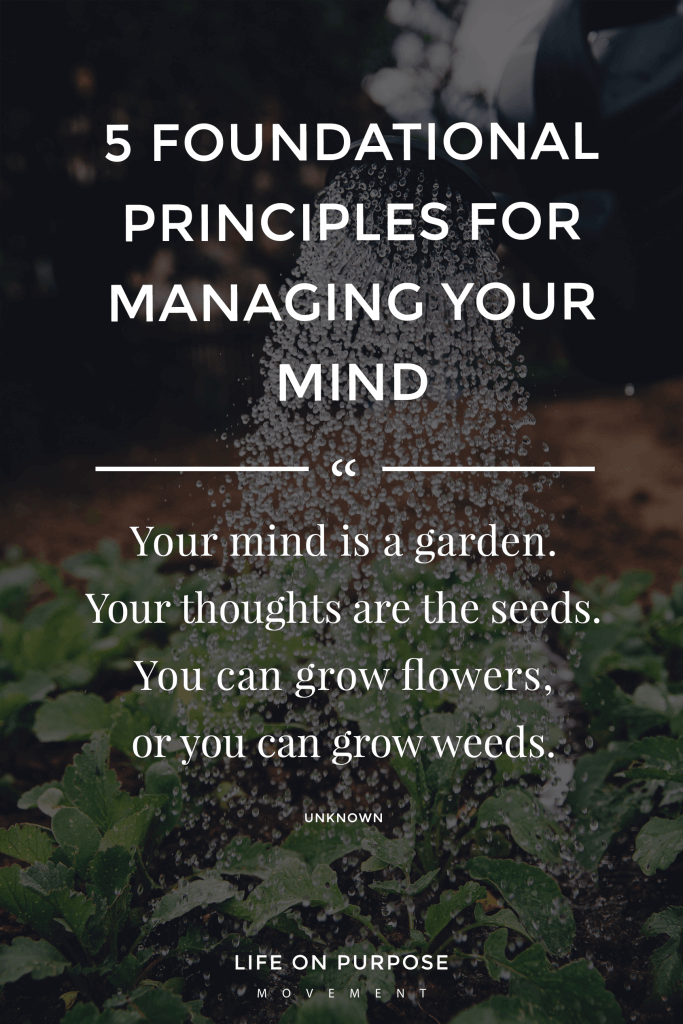Over the weekend, one of my best friends stayed with us. A few years ago, we lived in nearly identical townhouses in California, just doors apart, facing this big expanse of grass. Our kids would play for HOURS every week on that lawn, fighting with toy lightsabers or gathering leaves and flowers to add to their magical potions.
Since then, both of our families have moved away, but this weekend, we all picked up right where we left off—with my friend and I talking for hours, and our kids playing instantly like they’d never been apart.
While my friend was with us, I kept thinking, It’s so NICE, speaking the same language.
During the years that she and I lived in the same town, we both learned from the same teachers (through books, podcasts, and courses), so when we talk now, we share this common understanding—a framework to see the world through.
I’ve touched on this several times here on the podcast, but having my friend stay with me over the weekend reminded me that I want to make sure you and I are speaking the same language, because this is life-changing stuff!
It’s hard to encapsulate in a few words, but we’re going to call it “thought work.”
Thought work is the process of observing and managing your brain, and today I wanted to share five foundational principles—to get us all speaking the same language.

5 Foundational Principles of Thought Work
1. You are not your thoughts.
The foundation of thought work is the knowledge that you are not your thoughts. You—who you are at the deepest level—are separate from the voice of the mind.
I describe it to my kids as a monkey in your brain that never stops jumping. He’s so bouncy and insistent that you start to think of him as your voice. But he’s not; he’s just a visitor, and you can quiet him whenever you want to.
Eckhardt Tolle talks about this in his book The Power of Now. He says that the voice of the mind is what differentiates us from animals and plants but that our problem (and it’s a big one!) is that we’re letting that voice run unchecked.
2. Your thoughts—not your circumstances—determine your feelings.
In other words, the monkey in your brain is responsible for how you feel!
Let’s say you’re feeling frustrated and resentful, because (the way you see it) your kids never put their dirty dishes in the dishwasher. That’s frustrating—I get it!
But it’s not actually the circumstance (AKA “My kids left their breakfast dishes out this morning.”) that’s making you all angsty. It’s the thought you’re having about that circumstance. For example, “The kids should put their dishes away! They know how much that bothers me!”
Recognizing that it’s your thoughts that create your feelings is foundational to managing your brain, because it’s often a lot easier to shift your thoughts than it is to change your circumstances (in particular, other people’s behavior).

Which brings us to our third principle of thought work—
3. You can shift or drop recurring negative thoughts!
One by one, you can decide if your thoughts are serving you, and if they aren’t, you can drop them! We did a deep dive into HOW to do this back in Episode 17: What Is Emotional Clutter + How to Clear It Out. But just know this: (mental illness aside) you have more influence over your mind than you might think.
I have to apologize to my husband for throwing him under the bus here, but a few years ago, I noticed a thought that kept popping up in my mind. That thought was, “He makes my life so complicated.”
Naturally, my brain started gathering evidence for that thought, and the more evidence it gathered, the more I started to believe that my thought was a fact.
My husband craves adventure, spontaneity, and newness like I crave simplicity, consistency, and HOME. So every time he changed our family plans at the last second or booked us for yet another weekend road trip, my brain would say, See?! Evidence! He makes your life so complicated.
Eventually—with the help of a great life coach—I managed to step back and ask myself if this thought was serving me, and I decided to try making a small but positive shift.
Instead of defaulting to “he makes my life so complicated,” I practiced reaching for “he makes my life so interesting.”
Sure, he still often makes my life more complicated than *I* might make it, but with this simple shift, I started to notice that he opens me up to so many things that I probably wouldn’t experience otherwise, and I’m grateful for that.
You have that same influence over your own thoughts. You can shift or drop recurring negative scripts.

4. Presence is always an option for relief.
Does it ever feel like your mind is a high-speed train without any brakes? It speaks in rapid-fire sentences all day long—only to be silenced when you finally drift off to sleep.
While we can deliberately drop our unhelpful thoughts or replace them with gentler alternatives, another option for relief from the relentlessness of your mind is simply presence.
How often in your day do you quiet your busy thoughts and observe exactly where you are?
- Feel the solidness of the earth under your feet.
- Feel the sensation of a breeze (or maybe, the air conditioning 🤪) on your face.
- Touch a texture near you, like the smooth surface of your kitchen counters.
- Tune in to your surroundings with your ears; notice everything you can hear.
Take a minute to be where you are, free from the thoughts, worries, and to-do’s that normally dominate your headspace.
Presence is always an option for relief.
5. The more you practice presence, the better you’ll feel.
Don’t let that monkey mind run away with you! You deserve the stillness and peace you can experience from learning to turn the volume down in your head.
—
As Brooke Castillo says, “Are you creating your thoughts? Or are your thoughts creating you?” Make sure it’s you creating your thoughts—so those thoughts can help you build the life you want.

Need Relief from the Relentlessness of Your Mind? Introducing The Mindful Box
If you ever feel like your mind is a high-speed train without any brakes, I’ve got just the thing to remind you that you DO have a set of brakes and that you can use them any time you want!
Mindfulness is the ability to focus your attention on the present moment. It’s the practice of becoming The Watcher of your thoughts instead of the victim of them.
Prior to 2021, I had tried for YEARS to develop a regular mindfulness practice. I used the meditation apps, breathing apps, and even some techy gear, but I could never get anything to stick longer than about a week at a time.
Today, I’m so excited to announce our newest paper product: The 90-Day Mindful Box!
Every day you’ll pull a fresh card from the box and complete the four practices on each card: surrender, affirmation, gratitude, and meditation (which, by the way, can be as simple as taking three deep breaths).
Through The Mindful Box, you’ll experience the benefits that research has shown on mindfulness, from reduced stress and emotional reactivity to increased focus, memory, cognitive flexibility, and overall life satisfaction. Start your 90-day practice as soon as your box arrives!
I also hope you’ll consider giving The Mindful Box as a gift this holiday season. We currently have 2,000 units in stock, and once they’re out, we won’t be able to get more in time for the holidays. So take a look today if you’re interested! I so appreciate your support of my small business. ❤️
More from Episode 36 of “Life On Purpose with Erica Layne”
Listen to the full episode—including two additional segments—in your favorite podcast app, or in the audio player below!
Apple Podcasts | Google Podcasts | Spotify | Overcast | Stitcher
Podcast produced by Callie Wright





I have NEVER read a post that didn’t resonate with me! Please keep writing and reaching out for us that need it! It IS lifechanging to have this in my feed! Thank you!!!
Your comment just made my day! Thank you, Rosemary – I will! xo!